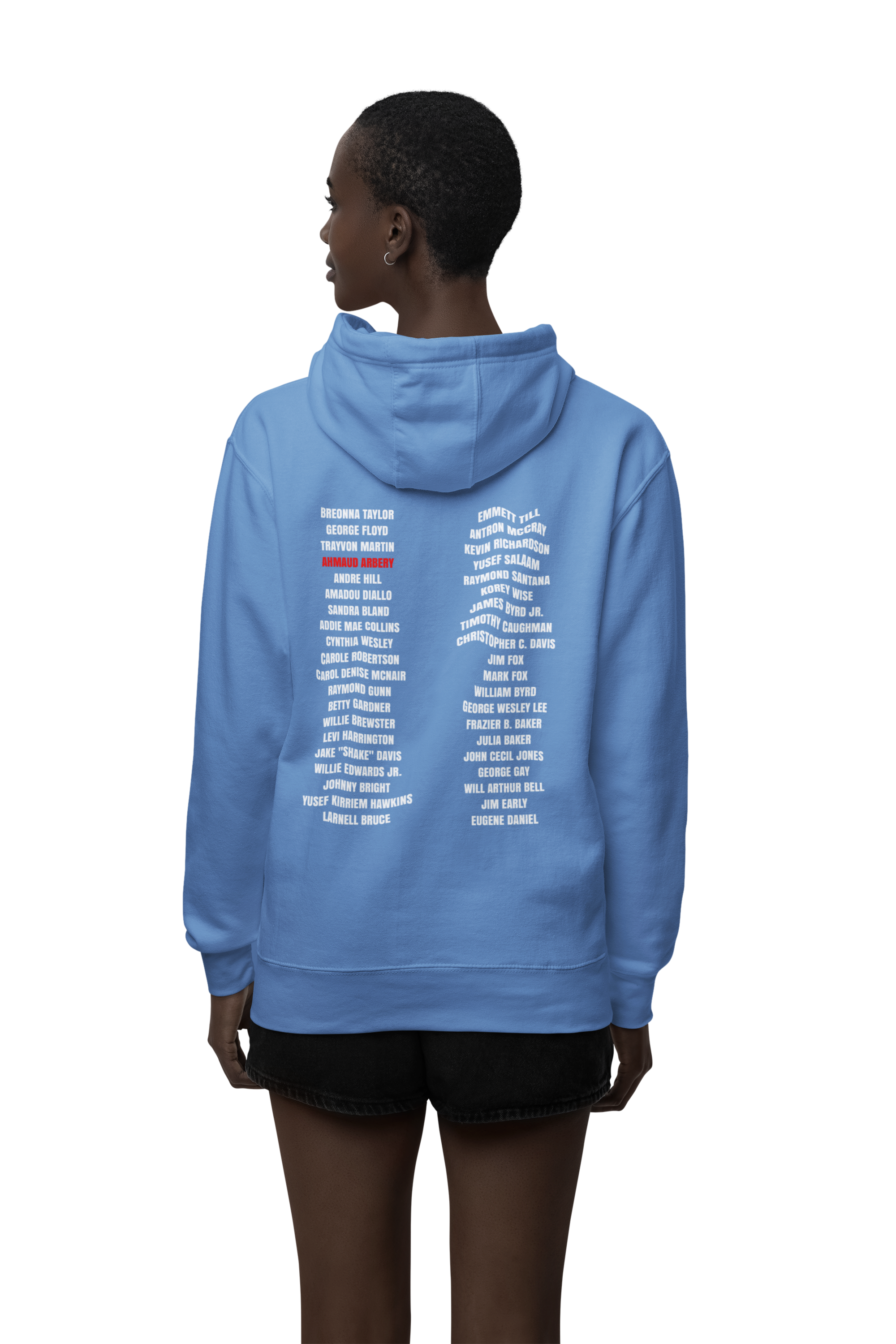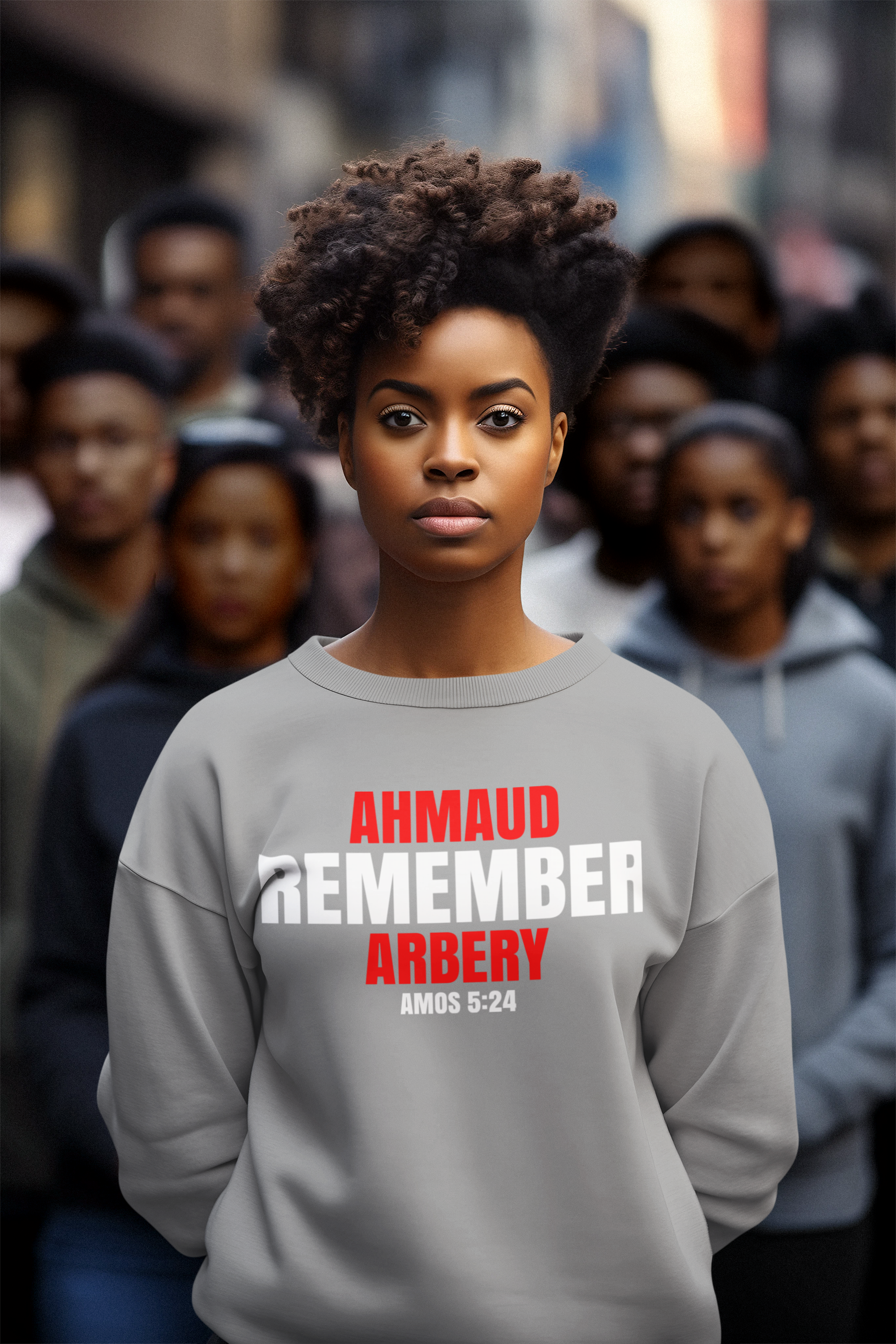
Seasons of Grace Fall Winter 2024-2025
Introducing Inspiration Apparel’s Fall Winter 2024-2025 "Seasons of Grace" Collection – a...

THE REMEMBER SERIES COLLECTION
The "Remember Series" by Inspiration Apparel is a powerful clothing collection designed...
"Reflecting on the Past to Build a Just Future: Remembering the Victims of Hate Crimes and Racial Injustice
NEVER FORGET
Central Park 5
Antron McCray, Kevin Richardson, Yusef Salaam, Raymond Santana, and Korey Wise (known as the Central Park Five)—were wrongly convicted of the assault and rape of Trisha Meili, a woman in Central Park in Manhattan, New York, on April 19, 1989. More than a decade after the attack, while incarcerated for attacking five other women in 1989, serial rapist Matias Reyes confessed to the Meili assault and claimed he was the only actor; DNA evidence confirmed his involvement. The convictions against McCray, Richardson, Salaam, Santana, and Wise were vacated in 2002. From the outset the case was a topic of national interest. Initially, it fueled public discourse about New York City's perceived lawlessness, criminal behavior by youths, and violence toward women. After the exonerations, the case became a prominent example of racial profiling, discrimination, and inequality in the legal system and the media. All five defendants sued the City of New York for malicious prosecution, racial discrimination, and emotional distress; the city settled the suit in 2014 for $41 million.
16th Street Baptist Church Bombing
The 16th Street Baptist Church bombing was a terrorist bombing of the 16th Street Baptist Church in Birmingham, Alabama on September 15, 1963. The bombing was committed by a white supremacist terrorist group. Four members of a local Ku Klux Klan (KKK) chapter planted 19 sticks of dynamite attached to a timing device beneath the steps located on the east side of the church.
Described by Martin Luther King Jr. as "one of the most vicious and tragic crimes ever perpetrated against humanity," the explosion at the church killed four girls and injured between 14 and 22 other people.
Emmett Till
Emmett Louis Till (July 25, 1941 – August 28, 1955) was an African American boy who was abducted, tortured, and lynched in Mississippi in 1955 at the age of 14, after being accused of offending a white woman, Carolyn Bryant, in her family's grocery store. The brutality of his murder and the acquittal of his killers drew attention to the long history of violent persecution of African Americans in the United States. Till posthumously became an icon of the civil rights movement.
Trayvon Martin
Trayvon Benjamin Martin(February 5, 1995 – February 26, 2012) was a 17-year-old African-American from Miami Gardens, Florida, who was fatally shot in Sanford, Florida, by George Zimmerman, a 28-year-old Hispanic American. Martin had accompanied his father to visit his father's fiancée at her townhouse at The Retreat at Twin Lakes in Sanford. On the evening of February 26, Martin was walking back to the fiancée's house from a nearby convenience store. Zimmerman, a member of the community watch, saw Martin and reported him to the Sanford Police as suspicious. Zimmerman fatally shot Martin in the chest.
Ahmaud Arbery
On February 23, 2020, Ahmaud Arbery, a 25-year-old black man, was murdered during a racially motivated hate crime while jogging in Satilla Shores, a neighborhood near Brunswick in Glynn County, Georgia. Three white men, who would later claim to police that they assumed he was a burglar, pursued Arbery in their trucks for several minutes, using the vehicles to block his path as he tried to run away. Two of the men, Travis McMichael and his father, Gregory McMichael, were armed in one vehicle. Their neighbor, William "Roddie" Bryan, was in another vehicle. After overtaking Arbery, Travis McMichael exited his truck, pointing his weapon at Arbery. Arbery approached McMichael and a physical altercation ensued, resulting in McMichael fatally shooting Arbery. Bryan recorded this confrontation and Arbery's murder on his cell phone.
George Floyd
George Perry Floyd Jr.(October 14, 1973 – May 25, 2020) was an African American man who was murdered by a police officer in Minneapolis, Minnesota, during an arrest made after a store clerk suspected Floyd may have used a counterfeit twenty-dollar bill, on May 25, 2020. Derek Chauvin, one of the four police officers who arrived on the scene, knelt on Floyd's neck and back for 9 minutes and 29 seconds which caused a lack of oxygen. After his murder, protests against police brutality, especially towards black people, quickly spread across the United States and globally. His dying words, "I can't breathe", became a rallying slogan.
William Byrd
William Byrd was an African-American man who was lynched in Brentwood,Wayne County, Georgia by a mob on May 28, 1922. According to theUnited States Senate Committee on the Judiciary it was the 31st of 61 lynchings during 1922 in the United States. He was shot multiple times, lynched, then the perpetrators burned his body.
-

Faith Over Fear Psalm 34:4
Introducing the "Faith Over Fear Psalm 34:4 Collection" by Inspiration Apparel, where...
-

Colossians 2:6-7 Rooted Collection
Rooted, Rich & Living Life On Purpose! Embrace the words of Colossians...
-

3 John 1:2 Prosper Wellness Collection
As we embrace National Wellness Month this August 2024, Inspiration Apparel invites...
-

THE REMEMBER SERIES COLLECTION
The "Remember Series" by Inspiration Apparel is a powerful clothing collection designed...
-

PROMISE COLLECTION
Finding Peace in the Promise The Psalm 121:7-8 Promise Collection serves as...
-

Journals & Notebooks
Inspiration Apparel Journals & Notebooks
-

TRANSFORMher
Welcome to the TRANSFORMHer Swag collection - a celebration of empowerment, growth,...
-

Luke 12:48 Live Your Purpose Sweatshirt & Hoodie Collection
\ Inspiration Apparel Sweatshirt Collection: Live Your Purpose 🌟 "To Whom...

We’re proud to offer Shop Pay Installments!
Get what you want today and pay in 4 or more payments starting at 0% APR.
Download Shop Pay















